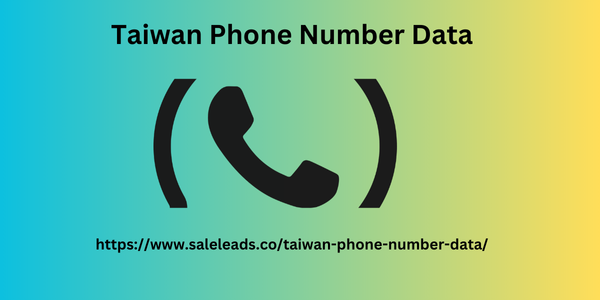|
阅读:86回复:0
Are there any restrictions on assigning phone numbers in Taiwan?
In Taiwan, the allocation of telephone numbers is done in accordance with the law, regulations established by the National Communications Commission, and the telecommunications industry. These regulations ensure that the operation of the telephone numbering system is efficient, fair, and without undue interference. Here are some of the major aspects of the restrictions and guidelines on the assignment of phone numbers in Taiwan.
1. Numbering Plan and Allocation Taiwan uses a well-structured number plan, wherein every phone number would be assigned by the specific prefix of mobile and landline numbers and area codes for each region. The NCC is responsible for the assignment of the said Taiwan Phone Number Data prefixes and codes to the respective telecommunications operators to ensure proper use and avoid duplication. 2. Mobile Number Portability While users in Taiwan can port their mobile numbers between different service providers, there are restrictions on the number of times a number can be ported within a given period. This policy helps prevent abuse and ensures that the portability system remains efficient. Users must also provide valid identification and meet specific criteria set by their new provider to complete the porting process. 3. Eligibility Criteria An eligible applicant shall provide a phone number. Basically, it requires identification, like a national ID card or passport, for mobile services, while credit checks may also be carried out for postpaid subscriptions. These are actually in place to prevent fraud and to make certain that the services are being delivered to valid users. 
4. Special Number Assignments Certain phone numbers, like the emergency numbers-for example, 119 for emergencies and 110 for police-are reserved and cannot be assigned for regular use. There are also premium or special service numbers that may require specific approvals from the NCC, usually with higher fees and more restrictive use guidelines. 5. Enforcement and Compliance The NCC monitors the observance of these regulations and, where necessary, can impose penalties. This enforcement keeps the numbering system organized and accessible to all, while protecting consumers against spam calls and other forms of telecommunications fraud. Conclusion These are necessary restrictions in Taiwan to maintain order and efficiency in the telecommunication system. The Government of Taiwan, through regulating the number allocations, eligibility criteria, and their implementation, protects the integrity of its telephone numbering system for the benefit of both consumers and service providers alike. As technology continues to advance, so will these regulations to keep Taiwan abreast of the best in telecommunications innovation. |
|

